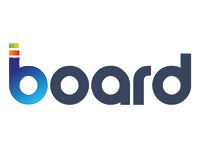What is Project Management?
Our project management approach
Project management is the application of knowledge, skills, tools, and techniques to a broad range of activities in order to meet the requirements of a particular project. Project management is comprised of
Project Management Process Groups
- Initiating
- Planning
- Executing
- Monitoring
Knowledge Areas
- Integration
- Scope
- Time Management
- Cost
- Quality
- Human Resources
- Communications
- Risk Management
- Procurement
Mission Critical
Tracking, understanding, and resolving details across all process groups and knowledge areas are the core tenet behind MindStream's project management philosophy. The Detail Project Work Plan captures definitions, approach, design, actions and post implementation team activities.
Project Communications - We use three key deliverables to facilitate communication between the Implementation team and the project stakeholders. They are:
- Deliverable Agreement Form
- Deliverable Acceptance Form
- Action Item Status Report
Steering Committee:
The Steering Committee is a key stakeholder in the process. Their approval of the process is critical for project management success. We use an Assessment Checklist and frequent update meetings to communicate status and critical issues.
Consensus building - design:
A successful implementation project goes beyond stakeholder agreement of the conceptual view. The "spirit" and power of the application must be conveyed to them as well. It is up to the project management team to clearly identify all areas of friction across all stake holders and document the sensitivity points across the expected process.Atention to Detail
The Project Manager is responsible for management of Unit and integration testing, and tracking of the progress of data integration. Delays in the design process could critically impact the integration approach. In addition, the project manager will identify and get steering committee approval for all reconciliation "tools" to be developed by the implementation team. These tools will be used to replicate the reconciliation process across the organization. Templates are created based on the source application. Before the reconciliation can begin the data mapping must be approved. As functionality of the application metadata structures are finalized, data source(s) are identified; existing file, automated feed, or manual input (web forms). All files are cataloged along with the person that is responsible for the tables from each business unit.
Validation of Documentation:
Run Books deliver an integrated internal control execution dashboard for optimal monitoring results. Run Books enable control monitoring evidence to better facilitate managing the project. Run books supply a detailed controlled handbook of the project's internal control processes by assigning individual responsibility to each document. Each internal control check scenario is executed for a particular corporate entity within an assigned business process. This is the gate keeper for all other documents.
Creation of process and control documentation:
A Control document will include each communication document, the document owner, the frequency of distribution and the distribution list. This document will act as process control for document communication.Planning of Go-Live development:
A Go-Live check list is created to identify all necessary components, persons and areas of responsibility in preparation for the cut over to the solution.
Post Go-live review:
After the application has moved into production it is important that lesson learned are documented and the Post-Delivery Evaluation form completed. Any items to be corrected are identified and recommendations for possible changes based on the monitoring of the close are documented. Depending on the results of this work final project sign-off is completed.
Contact MindStream Analytics
Want to know how MindStream Analytics can help you with Software Selection? Fill the form below.
Partner SpotLight

Board
BOARD provides a seamless software solution for the support, control and management of core processes such as Reporting and Analyses; Budgeting, Planning, Forecasting; Profitability Modeling and Optimization; Simulation and What-if Analysis; Scorecarding; Financial Consolidation; Statutory and Financial Reporting; Monitoring and Auditing.